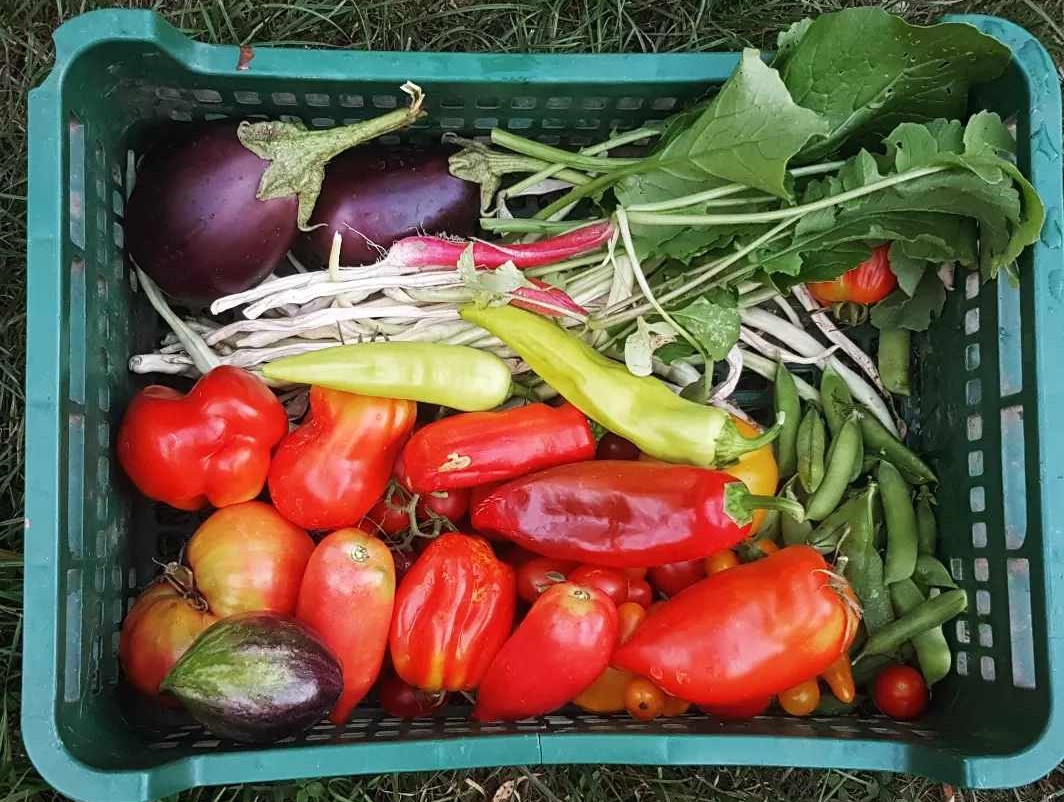We invite you to four days of programs dedicated to forgotten and underutilised crops (UCs)! Building on synergies between EU projects and related networks and providing networking opportunities, we organise activities to bring to light the forgotten values of diverse and resilient but underutilised crops from various aspects.
The RADIANT, LegumES and Divinfood projects and the DIVERSICROP network co-organised the program. The program will include the following:
RADIANT Creator Workshop – 2nd and 3rd June
ESSRG’s Food Projects: explore and network
How does ESSRG seek to shape the food system? During this networking event, you can learn how ESSRG works with local authorities and stakeholders and how we aim to impact food policies, showcasing our ongoing food projects.
Seed Saving at Szezon Kert
UC production starts with the seeds. However, access to seeds of less common species is limited. How can you access UC seeds? How does a community seed bank work? During a field visit at our RADIANT Aurora farm, Szezon Kert, Páty, you can actively participate and gain hands-on experience about horticultural UC seed saving techniques and learn about the network of seed savers from the members of the Hungarian community seed bank, Magház.
Policy convergence roundtable (RADIANT – LegumES – Divinfood)
A dedicated roundtable discussion, a key part of our program, will explore how policies can support UCs with invited speakers. The event will converge around creating momentum at the local and European levels for cultivated biodiversity. Food and agriculture policies, at various institutional and sectoral scales, may play a pivotal role in stimulating the incorporation of agrobiodiversity in the food system. Notably, minor crops can galvanise the transition to a much-needed dietary diversification. In this context, the Divinfood and Radiant Horizon 2020 EU projects are convening a policy roundtable in Budapest on June 3, 2025, to converge on creating momentum at the local and European levels for cultivated diversity. Divinfood and Radiant aim to amplify and fortify key policy recommendations to policymakers and actors by primarily sharing considerations and views with the Biovalue and Cropdiva sister projects as primus inter pares, possibly gaining from the expertise of other invited speakers. On behalf of these two projects, we kindly ask you to consider joining us in Budapest for the policy convergence round table titled “Public Policy and Local Authorities’ Role in Setting Up Territorial Networks to Manage Agrobiodiversity.” The session is embedded in Divinfood’s annual meeting and is part of the broader “Budapest underutilised crop week 2025,” including the COST Action’s Diversicrop Science & Policy Training School.
DIVERSICROPS Science & Policy Training School- 4th and 5th June
Underutilised agrobiodiversity is receiving increasing scientific attention for contributing to agroecologically-oriented approaches in agriculture and healthier food systems. Research projects are exploring pathways for integrating minor crops and breeds in the agrifood systems, highlighting their potential in nutrition, local food systems regeneration, and territorial identity. However, cultivated biodiversity seldom enriches fields and kitchens. Wide-ranging determinants restrain their adoption in an increasingly complex food environment. The training school will train attendees on transformative policies for promoting underutilised crops. The agenda includes policy studies, stakeholder engagement methods, stakeholder mapping, and working in the science-policy interface. It will be co-organised with two other EU projects, Divinfood and Radiant, fostering networking among DIVERSICROP WG4 and members of the two EU projects. This workshop aims to discuss the most pressing issues in policy relevant to UCs. The work and outcomes from previous studies focusing on UC will be used as a catalyst for these discussions. The workshop invites participants who bring practical experiences of policy-relevant research and innovation areas. Participants will be drawn from diverse areas, such as archaeobotany, breeding, environmental science, and nutrition. Workshop participants will be expected to take active roles in shaping the deliverables of WG4 outlined in the MoU. This workshop’s principal activity mode will be hands-on, discursive, and collaborative writing. Participants are also expected to work in small groups on specific tasks during the workshop; therefore, on-site availability is necessary.
Learning outcomes:
- understand the basics of policy-driven studies;
- better understand policy-related stakeholders’ needs;
- reflect on their own role and capacity as researchers to engage with policy work in a policy-science context;
- have the hands-on experience to approach and raise interest from policy actors.
